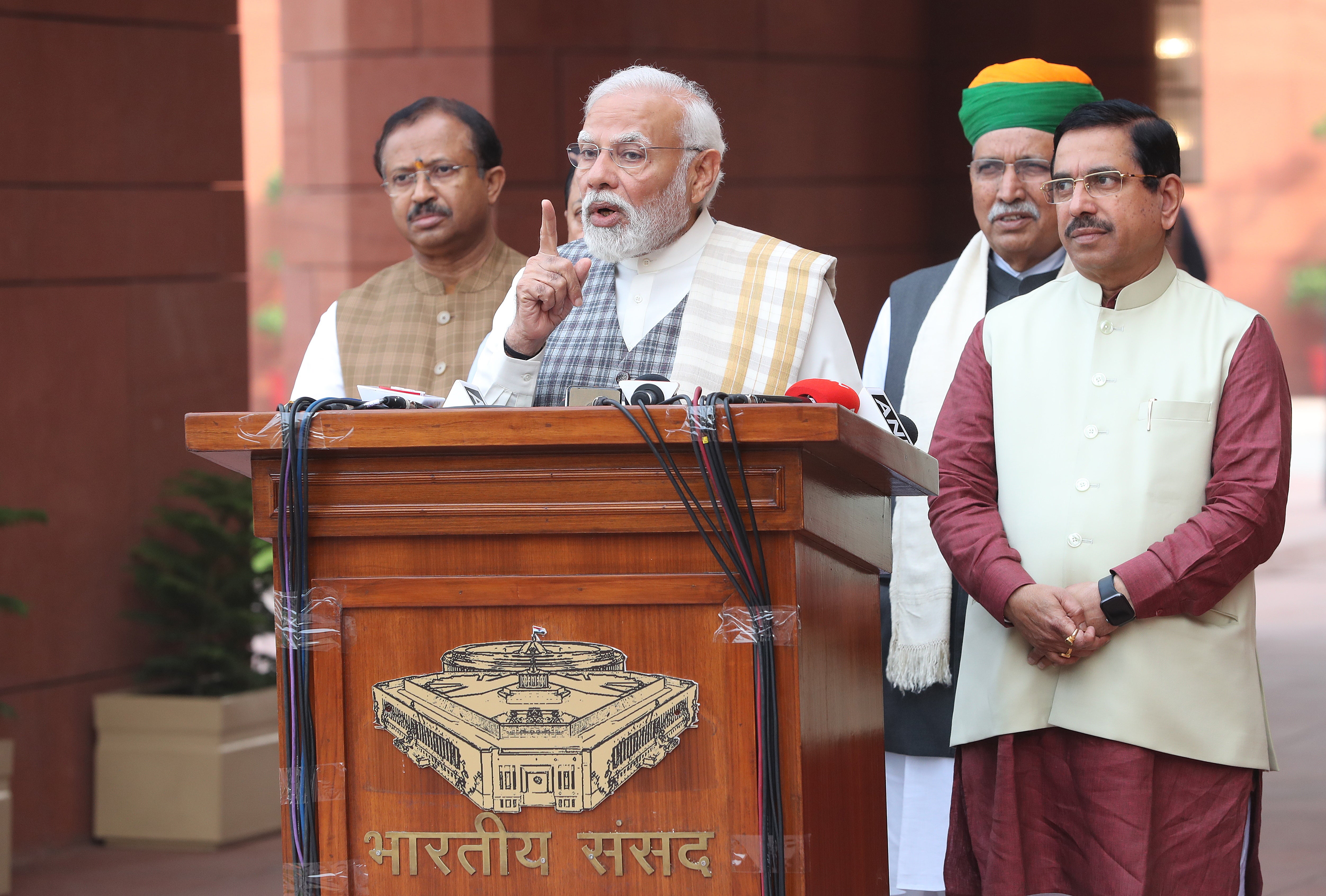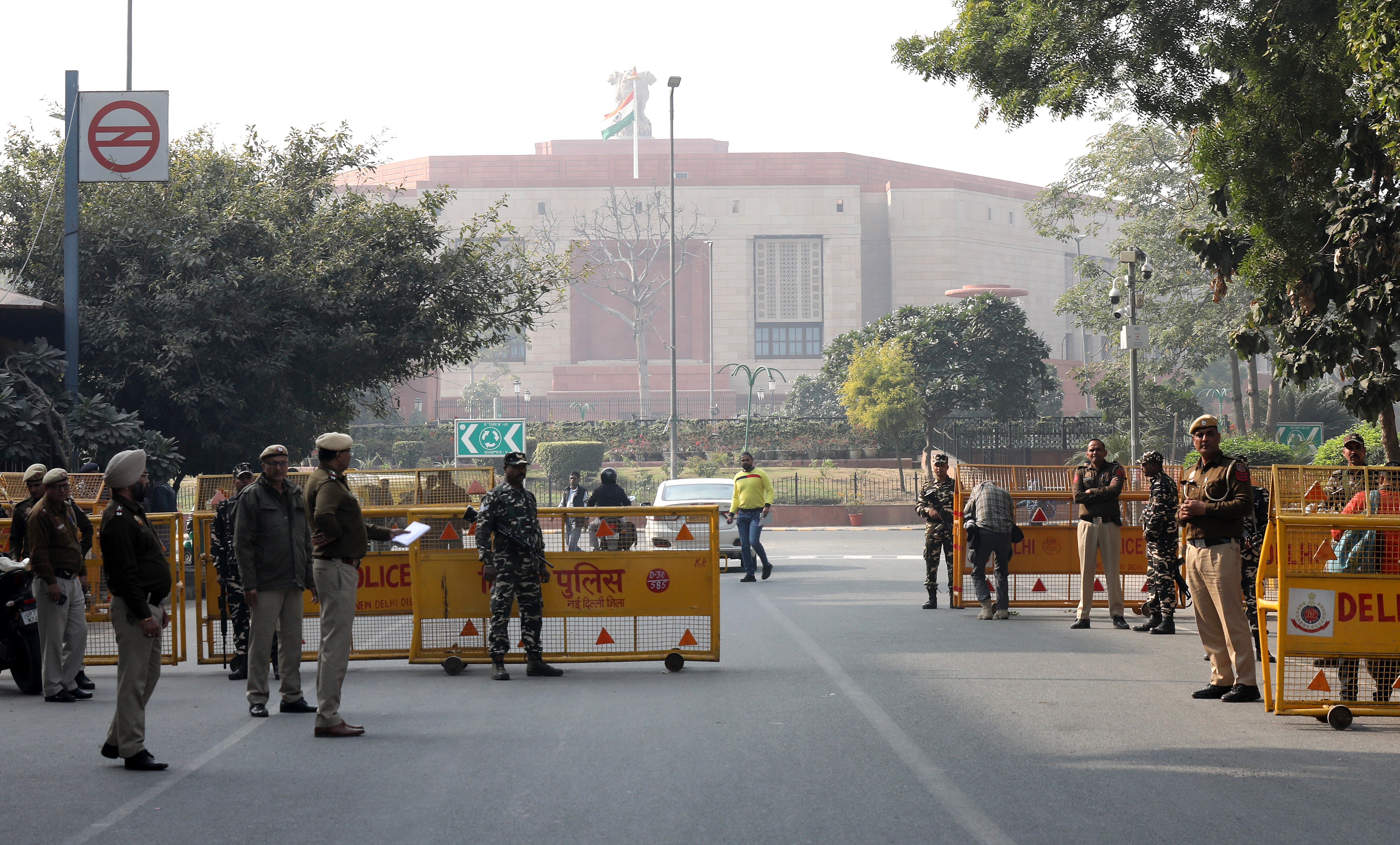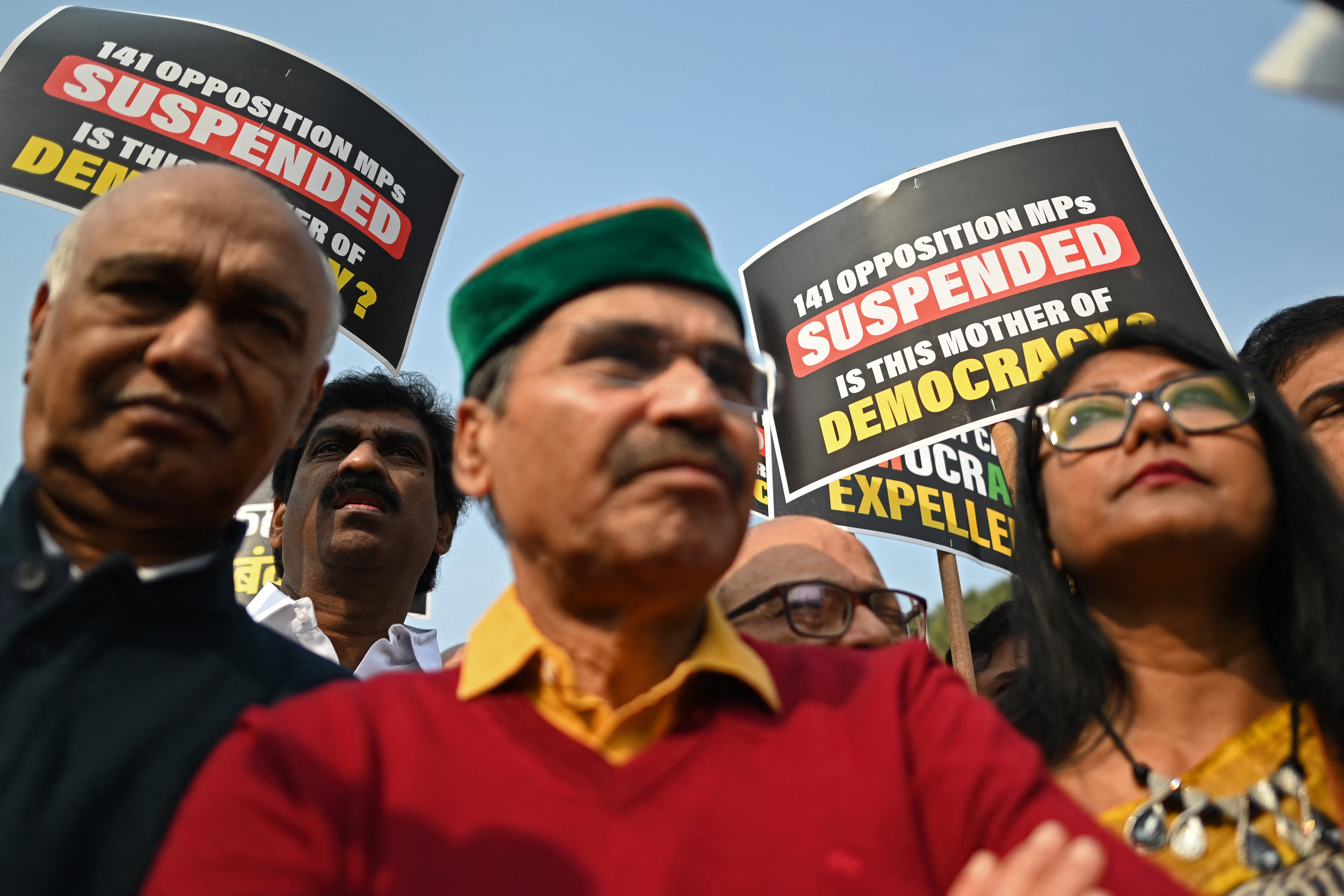India passes biggest reforms to criminal code in 150 years amid suspension of opposition
New bill, passed without debate in India’s parliament, include controversial measures like expanding detention in police custody from current 15-day limit to up to 90 days

Your support helps us to tell the story
From reproductive rights to climate change to Big Tech, The Independent is on the ground when the story is developing. Whether it's investigating the financials of Elon Musk's pro-Trump PAC or producing our latest documentary, 'The A Word', which shines a light on the American women fighting for reproductive rights, we know how important it is to parse out the facts from the messaging.
At such a critical moment in US history, we need reporters on the ground. Your donation allows us to keep sending journalists to speak to both sides of the story.
The Independent is trusted by Americans across the entire political spectrum. And unlike many other quality news outlets, we choose not to lock Americans out of our reporting and analysis with paywalls. We believe quality journalism should be available to everyone, paid for by those who can afford it.
Your support makes all the difference.India’s parliament has passed the biggest changes to the country’s criminal justice system in 150 years at a time when a large majority of opposition MPs were suspended from the lower house.
The package of reforms replaces the Indian Penal Code, drafted by colonial power Britain in the 19th century, and include some controversial measures such as the extension of the limit for police detention without charge from the current 15 days to up to 90 days.
Despite the significane of the changes, the new laws were passed with a unanimous vote and without debate late on Thursday. Meanwhile, more than 140 suspended opposition MPs protested outside the parliament, accusing prime minister Narendra Modi of throttling the country’s parliamentary democracy.
The MPs had been suspended for repeatedly demanding a debate in parliament over a 13 December security breach, in which two protesters stormed the chamber by jumping from the visitors’ gallery and releasing yellow smoke canisters. The speaker of the lower house, or Lok Sabha, then suspended a record number of MPs on the basis that they were disrupting the house’s proceedings.
Other major changes included in the new laws are the classification of terror offences under ordinary criminal proceedings, the formal decriminalisation of homosexuality and adultery – already decriminalised in practice – and the introduction of community service as a new form of punishment.

Sedition, a provision that has long been seen as a symbol of colonial legacy in India’s legal system and which was rendered inoperable by the Indian Supreme Court, has officially been repealed and replaced by another controversial provision of treason.
“Any activity will be considered treason only if it is intended against the integrity, sovereignty and unity of the nation and not just because it is against the government,” said home minister Amit Shah, as he emphasised the departure from the definition of sedition.
“Anyone can say anything against the government, but if someone interferes with the country’s flag, security, or property, they will go to jail," he explained. The new law will criminalise treason caused by armed revolution, destructive and separatist activities. The government has also introduced the death penalty for mob lynching.
Hailing the bills’ passage, prime minister Narendra Modi called it “a watershed moment” in the country’s history.
“These Bills mark the end of colonial-era laws. A new era begins with laws centered on public service and welfare,” he said.
“These transformative Bills are a testament to India’s commitment to reform. They bring our legal, policing, and investigative systems into the modern era with a focus on technology and forensic science. These Bills ensure enhanced protection for the poor, marginalised and vulnerable sections of our society.”
The Indian Penal Code (IPC), addressing a wide range of criminal offences, was introduced by the British in 1860 and have been amended approximately 77 times. However, with shoddy police investigations, jails overflowing with undertrials and slow-moving courts, certain voices advocated for an overhaul of the Indian criminal justice system deeming it as outdated and reminiscent of colonial times.
Suggestions from Supreme Court and High Court judges, governors, civil servants, police service officials, MPs, chief minister of states, collectorates and members of legislative assemblies were taken into consideration before giving final shape to the proposed laws, said Mr Shah.
Opposition parties raised concerns over the fact that the bills were passed without discussion, and questioned whether they would really solve the problems of the old penal code in their current form.
The members of the opposition alliance of 26 parties, dubbed the INDIA bloc, said they were considering moving the Supreme Court in a bid to challenge various loopholes introduced in the three new pieces of legislation, according to the local media outlets.
Slamming the government’s claim of the new law being an overhaul, opposition leaders and researchers claimed that they retain most of the provision from 160-year-old Indian Penal Code, drawn up British historian Thomas Babington Macaulay, adding that the changes could have simply been amended instead of replacing them with new bills.
“Has the government really dumped the British “colonial” criminal laws?” asked P Chidambaram, a parliamentarian from the opposition Congress party. “Consider the fact that 90-95% of IPC, 95% of CrPC and 99% of Evidence Act have been cut, copied and pasted in the three Bills: can anyone deny or debate that fact?” he wrote on X.
“The stated aim of the three bills is that we are decolonising the criminal justice system and creating citizen-centric procedures,” says Naveed Mehmood Ahmad, a senior fellow at Vidhi Centre for Legal Policy, a Delhi-based think-tank.
“Systemic reform is necessary. And generally, when you see governments taking up such tasks, you see incremental reform, you see amendments here and there. But the idea that they explored was that maybe we can fix everything in one go and address all issues in terms of trial evidence and substantive law altogether. The idea may have been OK. But there is nothing in terms of how these provisions, how the new bills change things on the ground,” he tells The Independent.

“Of course, there’s a renaming, some provisions have been amended [but] most of the law remains the same,” he says. “And when you look at issues that the criminal justice system in India faces in terms of over-criminalisation, in terms of delays, over-incarceration of under trials, there is nothing much that these bills do to check that.”
The government does not give a clear pathway as to what what needs to be decolonised and why decolonisation is necessary. “Merely because the law is old, is from the British Times, doesn’t make it a necessity,” he explains
“When I say that we have done nothing in terms of decolonisation, we should have looked at provisions that reflect the colonial mindset and these are provisions, that vest wide powers of arrest in the police.”
This is reflected in the new provision that increases police custody from 15 days to 90 days -- a provision deemed as “10 times more draconian” than the British-era criminal code.
Join our commenting forum
Join thought-provoking conversations, follow other Independent readers and see their replies
Comments